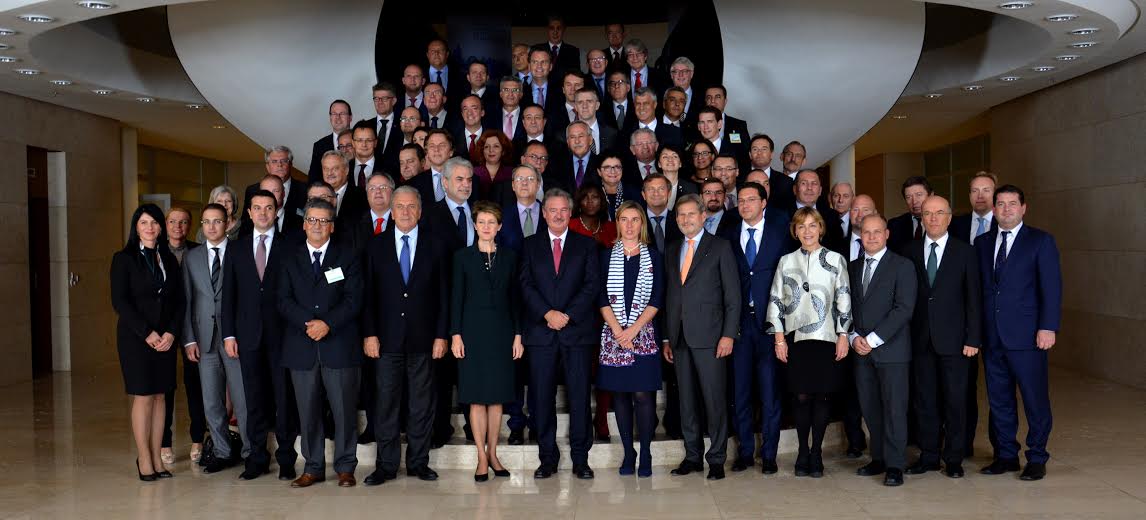



| Thursday, 08 October 2015. | |
| Minister Dacic in Luxembourg at the Conference on the East Mediterranean and Western Balkans route | |
| + larger fontnormal font- Smaller font |
 Statement by Serbia's First Deputy Prime Minister and Minister of Foreign Affairs Ivica Dacic at the Conference on the East Mediterranean and Western Balkans route in Luxemburg: Statement by Serbia's First Deputy Prime Minister and Minister of Foreign Affairs Ivica Dacic at the Conference on the East Mediterranean and Western Balkans route in Luxemburg:Ladies and Gentlemen, I am very pleased that we have gathered here today in an effort to find an appropriate response and a most adequate solution to the pressing issue of mixed migration that Europe has been facing in recent time. The complexity and the magnitude of this problem makes it incumbent upon all of us to give full and serious attention to it. At present, due to the on-going population movements, Serbia is one of the most affected countries. Although Serbia is not final destination for most of the migrants and refugees, it has found itself at the very centre of the Western Balkans migration routes and almost all migrants and refugees coming from Syria, Afghanistan, Iraq and other unstable areas, primarily from the Middle East, have transited through it, heading to the countries of Western and Northern Europe via the two EU Member States – Greece and Bulgaria. From the beginning of this year until today, a total of over 200,000 irregular migrants have been registered in the territory of the Republic of Serbia, 8.6 times more compared to 2014 as a whole. Out of this number, 190,000 said they intended to apply for asylum and approximately 600 of them did so. More recently, up to 5,000 people entered the territory of the Republic of Serbia on a daily basis and this number has not subsided but has only increased. Most migrants who enter our territory are registered, provided with shelter, food and healthcare. Serbia fully understands the situation facing migrants, because the Serbian people themselves were forced to migrate, in the recent past, to save their own lives fleeing the war, which makes them very sensitive and responsive to the problem of migrants. The way we have confronted various aspects of the migrant crisis and our empathy to migrants have so far been positively assessed both by EU institutions and Member States, as well as by the migrants themselves and the Arab countries. All this means a lot of us and makes us proud. However, the burden that we have to bear during this crisis is becoming increasingly difficult day after day. For two decades already, Serbia has been host to a large number of refugees from BiH and Croatia. At the moment there are 35,000 refugees, and on top of it, we are accommodating another 200,000 internally displaced persons from Kosovo and Metohija, while 300,000 are undergoing the process of local integration. This is a huge burden for the capacities of our country, and the influx of new migrants puts an additional strain on the country. Ladies and gentlemen, It is necessary to reach a comprehensive and sustainable solution, as soon as possible, at the EU level, to include also transit countries on the Western Balkan route. We wish to be part of this common solution and we are ready to take our share of responsibility, once the European Union agrees a migrant crisis settlement strategy. I would like to assure you that Serbia will continue to be a credible EU partner and treat the migrants in a manner that is fully consistent with European and international standards. We are also committed to actively participating in the implementation of all agreed upon today, including comprehensive border management. Finally, allow me to express my gratitude, on behalf of the Republic of Serbia, for the financial assistance provided to us so far, as well as for the pledges announced by the European Commission and other participating countries that have assisted us bilaterally. |